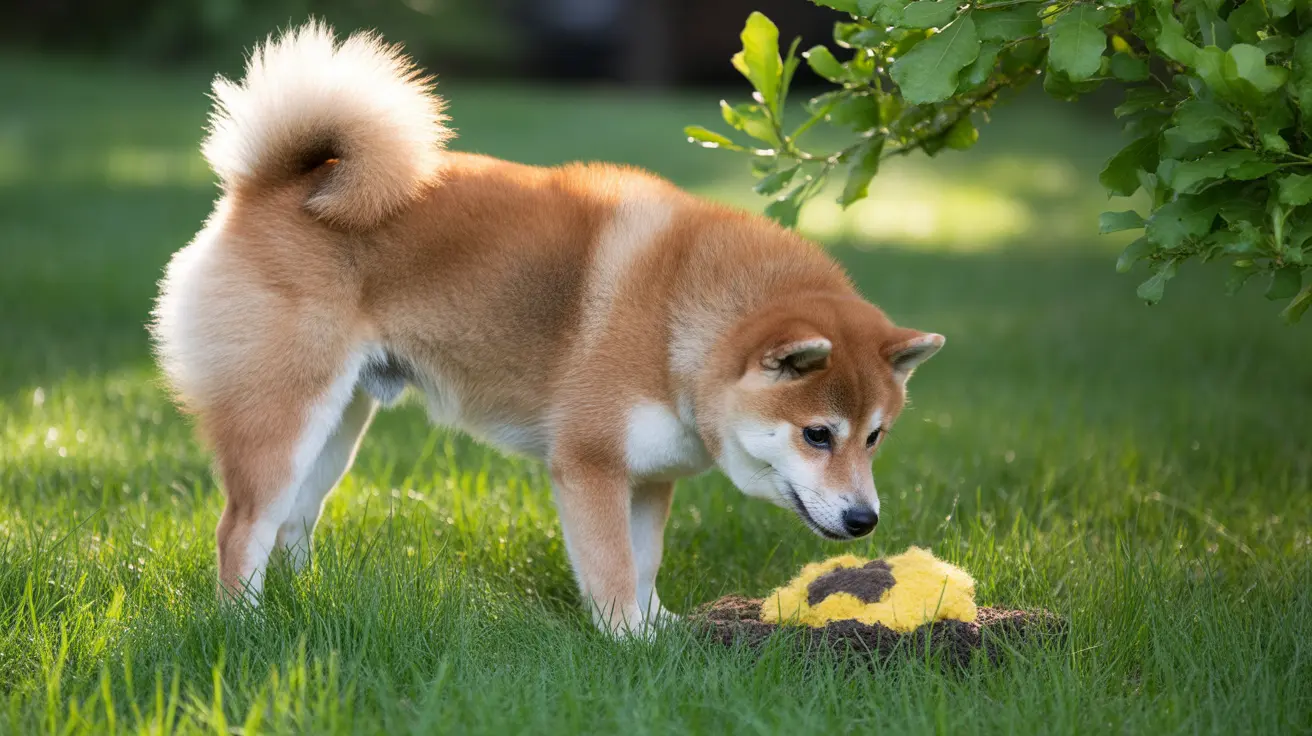Common Causes of Yellow Dog Poop
Dietary Factors
One of the most common and least concerning causes of yellow dog poop is related to diet. Changes in your dog's food, particularly sudden transitions to new brands or types of food, can temporarily affect stool color. Foods high in fat content or those containing artificial yellow coloring may also result in yellowish stools.
Additionally, dogs who consume large amounts of grass or yellow-pigmented plants might produce yellow-tinged feces. This is typically temporary and resolves once the dietary trigger is eliminated.
Digestive System Issues
More serious causes of yellow dog poop often involve problems with the digestive system. The pancreas, liver, and gallbladder all play crucial roles in proper digestion, and when these organs aren't functioning correctly, yellow stool can result.
Pancreatitis, a condition where the pancreas becomes inflamed, often leads to yellow, greasy stools along with other symptoms like vomiting and abdominal pain. Liver and gallbladder problems can also cause yellow or pale-colored stools due to improper bile production or flow.
Infections and Parasites
Various infections and parasitic infestations can cause yellow dog poop. Bacterial infections, viral conditions, and parasites like Giardia can all lead to changes in stool color and consistency. These conditions often come with additional symptoms such as:
- Diarrhea
- Lethargy
- Loss of appetite
- Vomiting
- Weight loss
When to Contact Your Veterinarian
While occasional yellow stools might not be cause for alarm, certain situations warrant immediate veterinary attention:
- Yellow stools persisting for more than 48 hours
- Accompanying symptoms like vomiting or lethargy
- Signs of dehydration
- Visible discomfort or pain
- Blood in the stool
- Loss of appetite
- Significant behavioral changes
Treatment and Prevention
Treatment for yellow dog poop depends on the underlying cause. Your veterinarian may recommend:
- Dietary modifications or a bland diet
- Medication for infections or parasites
- Anti-inflammatory medications
- Supportive care for organ-related issues
- Regular deworming schedules
Prevention strategies include maintaining a consistent diet, ensuring proper nutrition, and scheduling regular veterinary check-ups to catch potential problems early.
Frequently Asked Questions
What are the most common causes of yellow dog poop and when should I be worried?
The most common causes include dietary changes, food intolerances, and digestive issues. Be concerned if the yellow color persists beyond 48 hours or is accompanied by other symptoms like vomiting or lethargy.
Can a sudden change in my dog's diet cause yellow stool?
Yes, sudden dietary changes can cause yellow stool. Always transition to new foods gradually over 7-10 days to prevent digestive upset.
How can infections or parasites lead to yellow dog poop?
Infections and parasites can interfere with normal digestion and nutrient absorption, leading to yellow-colored stools. These conditions often cause inflammation in the digestive tract.
When is yellow dog poop a sign of serious issues like liver or pancreatic disease?
Yellow dog poop may indicate liver or pancreatic disease when accompanied by symptoms like jaundice, chronic vomiting, weight loss, or severe lethargy. These cases require immediate veterinary attention.
What steps should I take if my dog has persistent yellow poop with other symptoms?
Contact your veterinarian immediately, document when symptoms began, note any dietary changes, and collect a fresh stool sample if possible. This information will help your vet determine the appropriate diagnostic approach.
Conclusion
While yellow dog poop can be alarming, understanding its potential causes helps you make informed decisions about your pet's health. Monitor any changes in your dog's stool color and consistency, and don't hesitate to contact your veterinarian if you notice persistent yellow stools or accompanying symptoms. Early intervention often leads to better outcomes and can prevent more serious complications.






